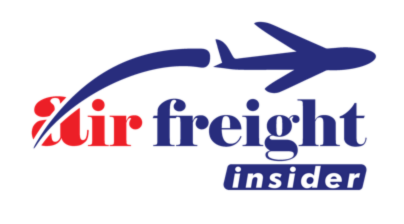Daily Briefing – June 4, 2025
Welcome to your daily update from airfreightinsider.com, where we bring you the latest and most relevant developments shaping the air cargo and aviation industries around the globe.
Airbus and the China Connection Lift European Markets
European stock markets saw modest gains Wednesday, buoyed by a sharp 3.4% rise in Airbus shares following reports that Chinese airlines are considering a massive order of several hundred aircraft, potentially as early as next month. This move comes amid ongoing US-China trade tensions and marks a strong strategic pivot for China toward European manufacturers. Bloomberg and airliners.de highlight this as a significant vote of confidence in Airbus’s long-term growth outlook.
Major Airlines and Fleet Developments
Virgin Australia is set for a substantial capital injection via an initial public offering expected to raise approximately 390 million euros, aiming to support its recovery and expansion plans. Meanwhile, Brazilian carrier Azul continues to reshape its network following its Chapter 11 filing in the U.S., dropping three international routes while adding new long-haul services to Madrid and Porto.
In Europe, KLM inaugurated a new twice-weekly service to Georgetown, Guyana, operating via Sint Maarten with Boeing 787-9 aircraft — a move strengthening its South American footprint.
However, not all airlines are flying smoothly: the East Frisian regional airline connecting the northern German islands has had to suspend all flights due to missing spare parts and an outstanding approval from the Federal Aviation Authority, illustrating ongoing challenges in regional aviation operations.
Innovations in Sustainable Aviation and Technology
On the sustainability front, GEODIS unveiled its new low-carbon air freight offering, AirSmart, at the transport logistic fair in Munich. This innovative solution aims to significantly cut greenhouse gas emissions in air cargo through advanced logistics optimization and supply chain integration.
Meanwhile, Airbus and CFM are pushing the boundaries of propulsion technology by testing the next-generation Open-Fan engine concept in wind tunnel trials. This breakthrough technology could dramatically improve fuel efficiency and reduce emissions, signaling a potential leap forward in commercial aviation.
Complementing these advances, Deutsche Aircraft showcased the first D328 Eco test aircraft, though notably without engines installed and featuring tinted windows — a deliberate step explained by the manufacturer as part of a phased testing process.
On the sustainable materials front, aircraft interior maker Recaro launched a new collection crafted from recycled aircraft seat components, including backpacks and laptop bags — highlighting the growing trend of upcycling in aviation supply chains.
Air Cargo Industry Sentiments and Network Expansions
Despite pockets of optimism, air cargo stakeholders remain cautious about long-term block space agreements with carriers, worried about volatility and potential rate hikes as market demand fluctuates. Forwarders seem to prefer flexible solutions over locking into lengthy contracts amid tariff uncertainties, as reported by The Loadstar.
In a more expansive move, Emirates SkyCargo announced plans to widen its freighter network across Europe and Asia starting Q3 2025, leveraging its Dubai hub to better connect key manufacturing centers with high-demand regions in Asia and the Middle East. This expansion underlines ongoing growth in specialized air cargo operations amid shifting global trade flows.
Regulatory and Policy Developments
Political and regulatory dynamics continue to impact aviation as well. A Dutch court invalidated the nature permit granted to Schiphol Airport last fall, which had capped flights at 500,000 per year, following legal challenges from environmental activists. This ruling may affect Schiphol’s growth strategy and environmental compliance efforts.
On another note, the majority of EU member states rejected proposed reforms to passenger rights regulations at a recent vote, prompting further deliberation among EU transport ministers. The outcome leaves the future of these consumer protections uncertain and highlights ongoing tensions between regulators, airlines, and travelers.
Meanwhile, Sweden officially abolished its air traffic tax to stimulate air travel, yet domestic flight numbers continue to stagnate, with Ryanair reporting slower-than-expected recovery in internal Swedish routes.
Partnerships and Ownership Changes
In airline partnerships, Turkish Airlines and TAP Portugal expanded their existing codeshare agreement to include new destinations such as Brazil, Morocco, Qatar, and Mauritius, as well as popular Turkish holiday spots Bodrum and Dalaman — a strategic move to boost connectivity and market reach.
Norway’s government completed the sale of its remaining stake in Norwegian Air, generating a significant profit and signaling a full exit from its investment in the carrier.
Voices from the Cockpit
For a personal perspective, Munich-based Aero-Dienst pilot and app developer Patrick Heinrich shared insights into his dual passions for flying and technology, discussing how his crew resource management app, SkyEQ, improves operational safety and experience on board.
Spotlight on Sustainable Aviation Fuel
In an in-depth interview, Thorsten Herdan of HIF Global explained the company’s innovative approach to producing climate-neutral sustainable aviation fuels (eSAF) by importing wind and solar energy from Uruguay into German refineries. Herdan emphasized the critical role of existing refinery infrastructure and regulatory frameworks in the pursuit of aviation’s decarbonization goals.
That wraps up today’s briefing. Stay tuned for our YouTube video which complements this update with expert analysis and interviews from the front lines of air cargo logistics.
— The airfreightinsider.com editorial team
